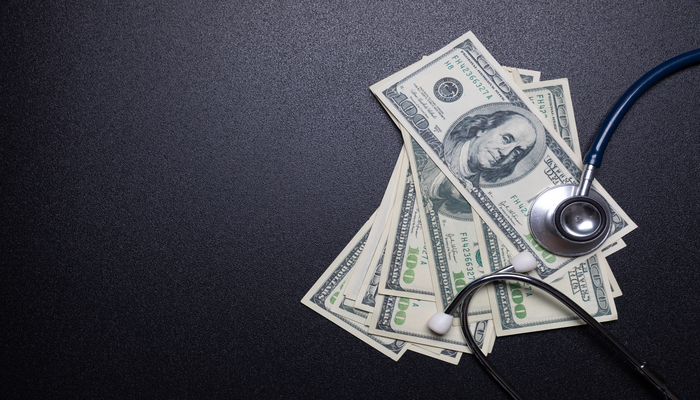An emergency fund is essential for financial security during uncertain times. However, many people hesitate to start saving, fearing it might affect their lifestyle. The good news is that it’s possible to build an emergency fund without major sacrifices.
Understanding the Importance of an Emergency Fund
An emergency fund serves as a financial safety net for unforeseen events such as job loss, unexpected medical expenses, or urgent home repairs. Having this fund can prevent you from resorting to high-interest loans or falling into debt. It is generally recommended that an emergency fund covers three to six months of basic expenses.
Assess Your Finances
Before you start building your emergency fund, it is important to understand your current financial situation. Conduct a detailed analysis of your income and expenses. Identify where you spend the most and where there might be opportunities to save without significantly affecting your lifestyle. Personal finance apps can be very helpful in this process.
Set Realistic Goals
Setting realistic goals is crucial for the success of your emergency fund. Determine how much you need to save to cover your expenses for a period of three to six months. Break this amount down into achievable monthly goals. Remember, it’s better to start small and gradually increase than to try to save large sums at once and end up giving up.
Automate Your Savings
Automating your savings can make the process easier and more efficient. Set up automatic transfers to a savings account dedicated to your emergency fund. This way, a portion of your salary will be automatically deposited into this account before you have the chance to spend it. This creates financial discipline and ensures that you are always contributing to your fund.
Cut Unnecessary Expenses
Cutting unnecessary expenses is one of the most effective ways to save without sacrificing your lifestyle. Small changes, such as cooking at home instead of eating out, canceling subscriptions you don’t use, and looking for free or cheaper entertainment options, can make a big difference. These savings can be directly funneled into your emergency fund.
Negotiate Discounts and Look for Promotions
Taking advantage of discounts and promotions can help you save without affecting your lifestyle. Often, you can find deals on items you already plan to buy. Use coupons, participate in loyalty programs, and take advantage of seasonal sales. Additionally, negotiating discounts on monthly bills like internet and phone can also lead to significant savings.
Utilize Extra Income
Use extra income to boost your emergency fund. Work bonuses, tax refunds, cash gifts, or any other unexpected source of income can be directed towards your fund. Taking advantage of these opportunities allows you to increase your savings without affecting your regular budget.
Adopt a More Sustainable Lifestyle
Adopting a more sustainable lifestyle can result in significant savings. Practices such as reducing energy consumption, using public transportation or biking, and buying reusable products can lower your monthly expenses. Besides saving money, you also contribute to environmental preservation.
Reevaluate Your Subscriptions and Services
Reevaluate your regular subscriptions and services to ensure you are getting the most out of them. Often, we subscribe to services that we end up using little or not at all. Cancel those that are not essential and look for cheaper alternatives for the ones you do use.
Earn Money from Hobbies and Skills
Turning hobbies and skills into income sources can be a great way to build your emergency fund. If you enjoy crafting, cooking, writing, or any other activity, consider selling your products or services. Online platforms make it easy to connect with potential buyers and allow you to earn extra money without large initial investments.
Invest in Financial Education
Investing in financial education is one of the best ways to ensure a healthy financial life. Learning about money management, investments, and financial planning can help you make more informed decisions and avoid financial pitfalls. There are many free resources, such as blogs, podcasts, and online courses, that can expand your financial knowledge.
Be Consistent and Persistent
Consistency and persistence are key to the success of your emergency fund. It is important to maintain the habit of saving, even if it’s a small amount each month. Over time, these savings will accumulate, and you will have a solid fund to face unforeseen events.
Revisit and Adjust Your Goals
Regularly review your financial goals and adjust them as necessary. Changes in your life, such as salary increases, job changes, or unexpected expenses, may require you to reevaluate your savings goals. Staying flexible and adapting your financial plan to your needs will ensure you stay on track.
Building Financial Security Without Lifestyle Sacrifices
Building an emergency fund without sacrificing your lifestyle is possible with planning and discipline. Assessing your finances, setting realistic goals, automating savings, and adopting a sustainable lifestyle are some of the strategies that can help you achieve this goal. Remember that small changes can make a big difference and that consistency is the key to success. With a robust emergency fund, you will be better prepared to face financial uncertainties and enjoy a more peaceful and secure life.
By implementing these strategies, you can create a solid emergency fund while still enjoying the things you love. Start planning your finances today and ensure a more secure and stable future.





